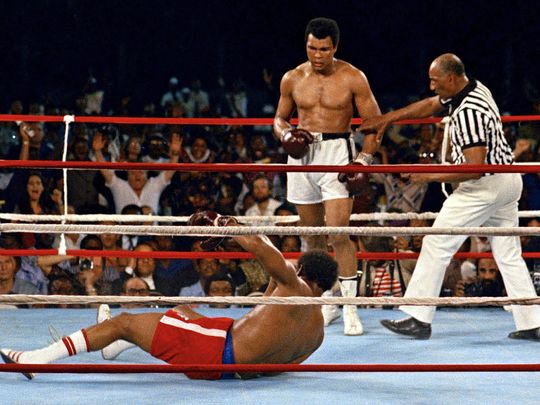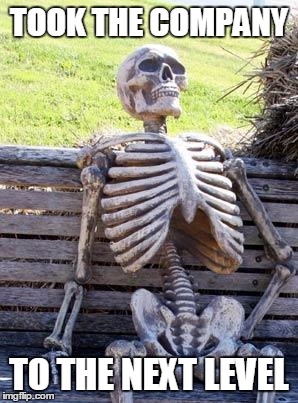Successful Nonprofit Arts Organizations, Like Successful Buildings, Depend on Successful Hierarchies
Level One:
Bricklayers. Carpenters. Stagehands. Electricians. Actors. Musicians. Painters. Singers. Writers.
Easy to find hacks. Difficult to find experts. Project-based.
Level Two:
Foremen. Department heads. Designers. Curators. Musical directors.
Small universe of successful ones. More skills required. Still project-based. Work toward a larger goal than Level One, namely a finished piece. Excellent collaboration skills.
Level Three:
Contractors. Directors.
Smaller universe still. Hire and manage Level One and Two (no requirement to perform at their skill level). Work toward a slightly larger picture, although still project based.
Level Four:
Architects. Executive/Artistic/General/Producing Directors.
Scarce universe of specialists. Determine “what.” Hire Level Three – several Level Threes, in fact. Understand projects, themes, and cohesion.
Level Five:
Owners. Boards.
Tiny, zealous universe. Hire Level Four. Determine “how.” Has personal stake.
Level Six:
The Community. The Mission.
Top of the hierarchy. Determines “why.”
Self-Absorbed Executive Search Firms: You’re Lovely, You’re Talented, You’re Dreamy. But Tact is Not Among Your Strengths.
On behalf of all candidates, to executive search firms:
“Thank you so much for your 3 [hour-long] phone interviews. I presented 8 tremendously qualified candidates to the client and unfortunately, you were not selected. But your loss is [company’s] gain. I’ll keep your info on file and contact you if something comes up.”
We may like you, but it’s not why we applied to that job you’re representing. Your client’s happiness with you means nothing to us.
One hour would have been plenty, not three.
A simple “no, thanks” is more palatable than “didn’t I do a good job?”
Please don’t insult us with passive-aggressive jibber-jabber – we know you’re not going to contact us unless we apply to another client of yours.
And please don’t tell us about other candidates. If we’re not among them, we really don’t care.
Happy Dependence Day – In the USA, the Arts Reflect Our Need for Each Other
The American Dream is built on dependence (Independence Day and elections notwithstanding).
The USA is Blanche DuBois and the “kindness of strangers.” We’re Willy Loman. We’re Fanfare for the Common Man. Revelations. Hamilton. Smoke Signals. Angels in America. Our successes depend and are dependent on the joy, madness, and desires of others.
The monarchy doesn’t choose our art; we do.
American art depends not on individual brilliance, even though there are brilliant individuals. Our best art provides impact.
Mavericks provide almost no impact. Collaborations do.
Patrons deign to “provide for.” Supporters want to “identify with.”
True, there are Americans that call themselves mavericks and patrons. Some folks prefer their terminology shrouded in cobwebs.
But for the rest of us, we know what we are. Even better, we know why. Our best arts nonprofits reflect “We, the People.”
Nonprofit Arts Organizations Without Flexibility Present a Disconnect When It Really Matters
On September 12, 2001, we issued an internal memo at our nonprofit arts organization. We proffered the notion that standing by our programming and “moving forward” was the best way to fight back.
We were wrong. Putting on blinkers never helps.
On June 12, 2016, after one attack in Orlando and a foiled one in Santa Monica – key nonprofit arts organizations are right now readying memos rationalizing the same advice.
Move forward. That’ll show ‘em.
At what tipping point do we scrap activities to reflect the damage inflicted on people? Why must we wait for a year to see the first artistic responses? Why not now? Why worry about the production quality of said response? As nonprofits, when do we sacrifice our comfort zone to provide leadership to our communities for some resolution?
Or should we just move forward? Yet again?
Transformational Persuasion: Muhammad Ali, George Foreman, Donald Trump, Hillary Clinton, and Why It Matters – Especially When You’re Running an Arts Organization
Muhammad Ali died last week. A quote from a Zairian in “When We Were Kings.”
“George Foreman? We had heard he was a world champion.
We thought he was white, then we realized he was black, like Ali….
Ali said [about Foreman], you’re the out-of-towner here.”
Nonprofit leaders that manage organizations, programs, and people well can be quite successful. But not transformational. Transformational leaders effortlessly persuade with passion about the mission, not the statistics. Their material requires no script, just practice to remove the “ums” and “uhs.”
Trump, for example, vigorously (and effortlessly) transforms experienced opponents into “out-of-towners.” Clinton relies on effective policy, experience, and “being right.”
Passion KOs policy every time. Ask George Foreman.
Doesn’t your arts organization’s constituency deserve the most transformative experience you can offer? Or do you settle for production excellence and competence?
Talk to Me Like I’m 10: a Lesson in Long-Term Planning for Artistic Directors and Board Chairs
Does long-term planning cause a rift between your artistic director and those other people?
Does it cause discord between your board chair and those other people?
Seen all the time among arts charities: carefully (and successfully) executed annual development plans reduced to rubble after the board institutes a high-priced capital campaign. The capital campaign sucks up all in its path, causing 5 years of stakeholder repair. Indispensable Chair happy. Staff leaves.
Artistic directors substituting their taste for vision and their personal and professional relationships for core values. Idiosyncrasy obviates mission. Indispensable AD happy. Board leaves.
Both cases: company imperiled, stakeholders leaving.
Time to create an action plan, written at a 5th grade level. Make it about impact rather than income. Test the theory that your arts nonprofit is indispensable. Make sure that your most important stakeholders don’t leave.
Nonprofit Arts Board Members, Executive Directors, and Staffs: Has Your Board Been Assimilated? Have You?
Board membership for a nonprofit arts organization is a privilege. It requires commitment of time and money. It requires the urge to change things for the better.
It’s not for self-aggrandizement. It is not about being thanked endlessly. It’s not about banquets, galas, and being fed.
It’s a job.
Group thinking can be inspirational, but “groupthink” can poison your organization’s health. When your board only votes unanimously, for example, or the newly-approved mission is just reverse-engineered to current activities and reduced to pabulum, you may no longer have a board. You may instead have a Borg.
Borg members wait for orders. They don’t debate. Resistance is futile.
The Borg is powerful. Borg Presidents lead by autocracy. Borg Queens (often founders) drive staff away by insisting the organization’s activities revolve around them. Borg Drones atrophy.
Board or Borg?
Special 2016 “Alan Harrison’s Birthday” Edition: Pack Up the Babies and Grab the Old Ladies – And an Easy-To-Fulfill Wish List

I was born on May 14. Conceived on a hot August night. Neil Diamond would’ve been proud. He was old enough to have a kid then, so…who knows? Brother Love? Are you my papa?
From him, I want flowers.
From you, I want (this is your cue):
- A 137-word card. ( <–Yes, that’s a link.)
- Share your favorite 137 Words post with your social network (that’s “share,” not “like”).
- To join a great company with a great mission. In Seattle.
- Health for The Kid.
- Guidance for The Kid.
- The love of my life to be happy, fulfilled, and curious. You know who you are.
- The ability for you to guide your favorite nonprofit to safety, security, and success.
- Brilliantly measurable missions, better than you believe you’re capable of.
- Complete, successful execution of those brilliant new missions.
- Pie, not cake.
“See a Need, Fill a Need” (As Long as Your Arts Aren’t the Need)
What’s the biggest societal issue in your personal world?
Americans in April named their list. What’s yours?
Economy, racial injustice, government dissatisfaction, immigration, terrorism. Unsolvable as big issues. Possibly solvable as small ones.
Hunger in your neighborhood? Support the food bank. Find ways for it to thrive so that many can survive without resorting to lawlessness.
Specific racial and income injustice in your town? Support the agencies that convene and expose the problems to the light. Find ways to gather people together who might never otherwise come together – and de-mythologize the stereotypes of the bad [ethnics – fill in your own blank] or the bad [other ethnics] or the bad [government officials], etc.
And do it using your art as a tool.
How?
You now have step A and step Z. Just fill in steps B through Y.
Nonprofit Arts Executives: After the Ask (for anything, actually), It’s Fast “Yes,” Slow “No”… Try a Slow “Yes” Instead
If you don’t hear right away, it’s probably “no.”
That goes for asks, offers, hiring, and anything else you require.
And that goes for you, too, when your stakeholders ask, offer, hire, and anything else they may require.
Reflection is the predictable path toward rationalization to the “no.” This is why the phrase “upon reflection” is almost always followed by a version of “we’ve decided not to change.” After all, as a rule, it’s easier not to change than to take a risk.
Many arts charity executives preach the glory of “managed risk” (an oxymoron, of sorts) and value fiscal responsibility above social impact. To be clear, social impact is central to the success of the mission; fiscal responsibility is a valuable business practice.
If “yes” leads to greater impact, then stop saying “no”… especially upon reflection.
The Paradox of Simplicity: Success Begins with Better, Not More
There’s a saying that every weapon that’s been invented has been used. Or will be.
Similarly, every technological advance of the last 30 years has been used. Or will be.
More avenues of communication. More personalized offers. More database data. More news. More marketing. More music. More art. More words.
Not “better.” “More.”
This is not code for “I’m old and yearn for a simpler time.” I’m not and I don’t. What I yearn for is a better time.
Regardless of how many ways key information is dispersed, some folks just don’t consume it. And that’s on you.
I should know. You may be engaging with this post (and thank you), but others who could, don’t. And that’s on me.
A blown basketball pass is the passer’s fault. But a bad pass isn’t solved with throwing more basketballs.
Artists and Non-Offensiveness: The Tyranny of Over-Sensitivity, Feelings, and Participation Trophies

There’s a troubling trend. There’s an absurd unwillingness to offend that seems pervasive among arts creators.
Not that creators are creating “Pleasant Art,” per se. Writers and artists are creating lots of work that is designed to make audiences uncomfortable. Which is good. The work may be about single issues and not terribly complex, but it’s good.
However, there are too many artists raised in atmospheres where everyone wins, even when they lose. In the name of inclusion and self-esteem, they live in a world where, like toddlers, “feeling bad” is simply unacceptable.
They believe they’re special.
To these artists:
- You are not special.
- You do not deserve success.
- Sometimes you lose.
It’s what you do with that information that defines you.
If you believe that nobody should ever have hurt feelings, you’re not doing your job.
Leadership Issues: Flop Sweat, Board Meetings, and When You Lose the Room

Inevitably, there are moments where analysis disconnects with sentiment. You plan by yourself and generate work for your staff. Your staff objects. You have misread the room and caused great resentment. They think you’re a nut.
You’re in a big job interview. The interviewers say they want to “have a conversation,” but instead read from a pre-chosen list of questions. You try to converse. They bridle, citing “fairness.”
Your meetings with the board leave you rolling your eyes…and leave them rolling their eyes as well. You think they don’t understand the problem. They’re sure you don’t.
When you lead by pronouncement rather than by consensus; when you define interviews as interrogations; when you perceive meetings with superiors as continual performance evaluations – these are your issues, not theirs. That anxious sweat on your neck is on you.
Arts Organizations: 137th Post, 137 Thanks, and 137 (of Other People’s) Words That Guide Inspiring Leaders
“We must reject the idea — well-intentioned, but dead wrong – that the primary path to greatness in the social sectors is to become “more like a business.” Most businesses…fall somewhere between mediocre and good.” (Collins)
“If a man does not keep pace with his companions, perhaps it is because he hears a different drummer. Let him step to the music which he hears, however measured or far away.” (Thoreau)
“People don’t buy WHAT you do, they buy WHY you do it.” (Sinek)
“When they say things like, we’re going to do this by the book, you have to ask, what book? Because it would make a big difference if it was Dostoevsky or, you know, ‘Ivanhoe.'” (Anderson)
“‘To be is to do.’ (Socrates) ‘To do is to be.’ (Sartre) ‘Do be do be do.’ (Sinatra)” [Vonnegut compilation]
How You Can Solve Diversity With Your Nonprofit Arts Organization!
You can’t.
Arts organizations challenge, reflect, and engage. They don’t solve.
And remember, race is only one small bit of cultural diversity, not all of them. Just as the opposite of love isn’t “hate,” but “indifference;” the opposite of diverse isn’t “white,” but “homogeneous.”
I read a political blog recently about the Democratic Party presidential race. What troubled me were these words:
“What I’m crossing my fingers for is that in ten years or so we’ll get… a young,
charismatic democratic socialist who runs for president. (Preferably this
candidate would be a woman or a non-white person or, ideally, both.)”
Isn’t that parenthetical statement just as intolerant as one where “not” had been inserted after “would?”
Diversity isn’t only about race or gender or any of myriad other categories. It’s about power, shared equally, with specific impact.
Ils pétent plus haut que leur cul. Marketing Intellectual Pursuits to an Anti-Intellectual Public, Right-Cheer In These You-Nited States of Murrica
In the arts, we want to attract more people. Or do we just want more us?
We’re asked to produce vision, impact, and engagement. We embrace entertainment, but only if it’s at a 120+ IQ level. Even abject silliness on stage is only acceptable if it’s “smart.”
When another company produces an RSC script, they almost apologize in their marketing:
RSC: “it’s not the length of your history that matters – it’s what you’ve done with it!”
Other: “Between the rampant nationalism and the recent election, we think it more vital than ever for us to show we’re capable of laughing at ourselves. It, too, is part of the healing.”
Populism in the arts is an open path to success. Risk being fucking funny, not drolly meaningful.
Face-palms in the arts world: Oh, somewhere in this favored land the sun is shining bright; the band is playing somewhere, and somewhere hearts are light

Somewhere…
- A managing director is face-palming because the budget draft is still a departmental wish list;
- A marketing director is face-palming because the artistic director decided that he knew more about marketing than the marketing director;
- A development director is face-palming because the board chair has fashioned a multi-million dollar “capital” campaign (actually, a “get-out-of-debt” campaign) with no feasibility study, no regard to the annual development campaign, and no accountability to anyone else;
- An artistic director is face-palming because the plays she wants to do don’t jibe with the mission of the company;
- A board member is face-palming because every meeting is about reporting, money, by-laws, and the gala;
And somewhere, performing arts audiences and constituents are collectively face-palming, hoping against hope that the arts folks in their region remember that for them, it’s about the art.
Growth – Please retire the following phrase…
The following phrase should be banished, at least in nonprofit arts organizations: “Taking Our Organization to the Next Level.” To be blunt, it’s an empty goal, often undefined and misleading, and let’s face it, profoundly stupid.
Consider asking the next person who uses it, “Why would you?”
Then ask, “Are you planning on changing the way you do business?” Then ask for a definition of “next level.” Then ask what has kept the organization from achieving that already.
Are they rationalizing a way to do what they’ve always done, only harder, and somehow experiencing growth?
Growth is usually defined as increased depth or breadth (rarely both). Forcefully choose goals with great specificity. Make your choice obvious; don’t aim for subtlety.
When troubled potential constituents notice no change, they will offer no path to growth.
Why would they?
Nonprofit Arts Leaders: 137 Powerful Verbs for your Mission or Programs – Instead of Hyperbolic or Aspirational Adjectives. (Boring Headline, Yes?)

Accelerate
Achieve
Acquire
Advance
Advise
Advocate
Align
Amplify
Analyze
Arbitrate
Assemble
Assess
Attain
Audit
Award
Boost
Build
Calculate
Campaign
Capitalize
Chart
Clarify
Coach
Complete
Compose
Conserve
Consolidate
Consult
Convert
Convey
Convince
Coordinate
Correspond
Counsel
Create
Cultivate
Customize
Decrease
Deduct
Define
Delegate
Deliver
Demonstrate
Design
Develop
Devise
Diagnose
Discover
Document
Earn
Educate
Enable
Enforce
Engineer
Enhance
Ensure
Establish
Evaluate
Examine
Exceed
Execute
Explore
Facilitate
Forecast
Forge
Formulate
Foster
Further
Gain
Generate
Guide
Identify
Illustrate
Implement
Improve
Incorporate
Influence
Inform
Initiate
Inspect
Inspire
Integrate
Interpret
Introduce
Investigate
Launch
Lift
Lobby
Maximize
Measure
Mentor
Merge
Mobilize
Modify
Monitor
Motivate
Navigate
Negotiate
Orchestrate
Organize
Overhaul
Partner
Persuade
Pioneer
Plan
Produce
Program
Promote
Qualify
Quantify
Reconcile
Recruit
Reduce
Refine
Replace
Resolve
Revamp
Review
Scrutinize
Shape
Simplify
Stimulate
Strengthen
Succeed
Supervise
Surpass
Survey
Sustain
Target
Teach
Track
Train
Transform
Unite
Update
Verify
Yield
Arts Organizations: What is Your Art? Is it “It?” Is it a Picture of “It?” A Report of “It?” None of the Above?

45 years ago today, February 9, an earthquake happened. I was shaken out of bed and looked out the window just in time to see a brick chimney fall on Dr. Prince’s new 240Z. That’s what happened to me.
We turned on the television to see films about the Van Norman Dam — in danger of bursting. I saw that through a lens.
The next day’s LA Times had the front-page story, “DAY OF DISASTER — Quake Leaves 42 Dead, 1,000 Hurt; Periled Dam Forces 40,000 to Flee.” I read that report.
The racing results, as always, were in the sports section. A square box on the front page said so. Horse racing is a popular entertainment. I didn’t care.
Is your art happening to your constituents? Is it through a filter? Is it second-hand? Or is it entertainment? Only one is personally meaningful.
If You’re _____________, Then Your Nonprofit Arts Organization is Probably Unsustainable (with apologies to Jeff Foxworthy)
- not paying your executive director because s/he is independently wealthy and actually donates 6 figures to the company;
- working 70 hours/week every week and see nothing wrong with that;
- hiring part-time employees and expecting them to work full-time free of charge;
- of the belief that your employees are less important than your equipment or your building;
- insisting that anyone besides your marketing director is the final word on your marketing;
- keeping your artistic director away from donors because s/he doesn’t know how to interact with them;
- in the mindset that any of your people are more important than any other of your people;
- playing “Dialing for Dollars” to meet your payroll;
- arguing that “keeping the base” is more important than expanding the audience, while…
- thinking that you can do both;
- sweating a little right now after reading this post.
A Mailing from Your Charity, or An Over-Solicitor’s Rare Christmas Miracle
T’was the month before year’s-end; the devo department
Was sending appeals to all homes and apartments.
The director was sweating like Richard M. Nixon
For fear that a failure would cause crucifixion.
The ED was clueless and screaming for money
And the board chair was gone, yachting to Bimini.
The donors were asked to contribute all year.
Each month — no each week! — it’s all they could hear.
“Give now” and “Give now” and “Give now” once again.
They were tapped just for money and not for their ken.
When all of a sudden there arouse such a ruckus
A donor had given fifteen thousand buck-us.
The annual giving director said “WHEE!
We’ll hit all our goals! And they’ll promote me!”
The year-end was saved and Christmas was merry,
Now it’s time to mail the appeal for January.
Change Management and the Psychology of Surprise
I’m continually surprised by surprise announcements.
Seattle does not tolerate surprise announcements well. I’m not sure of a place where surprises go well, but in a city fomenting the crucible of passive-aggressive behavior (see this article for some fun), change without tortuous committee meetings is, well, gauche.
Recently, KUOW (Greater Seattle NPR news/talk licensed by the University of Washington) issued a surprising announcement that they’ve signed a deal to buy KPLU (Greater Seattle NPR news/jazz licensed by Pacific Lutheran University). Evidently, Pacific Lutheran University’s broke.
FYI: KUOW once purchased another non-commercial station, KXOT, to carry its KUOW2 programming. That failed.
Listeners/Members hate the idea and said so at a meeting on November 23. KPLU kept soliciting memberships even after the deal was signed.
KUOW comes off as untrustworthy, KPLU as desperate.
Surprise!
Stay tuned.
The Christmas Arts Season is Almost Here: Time for Much Mooing and Missions Drifting Higher than the Plowed Snow Blocking your Driveway
Once there was a theatre company that produced new plays. However, during the holiday season, they produced “A Christmas Carol.”
Foundation leaders that supported this company asked one day, “Why do you produce ‘A Christmas Carol’ when it has nothing to do with your mission or the rest of your activities?”
“Because,” said a truthful board president, “it’s our ‘cash cow.’ And we need to milk it for all its worth to pay for everything else we do.”
“Oh,” said the foundation leaders. “Does it?”
“Yes,” said the president. “It’s a good thing, too.”
The leaders huddled together.
“That’s wonderful,” they said. “It follows, then, that we can now fund companies whose mission aligns with ours. With your ‘cash cow,’ you don’t need us. Thank you!”
And then they cut funding to the theatre company to zero.
Confusing the Messenger with the Message: Artistic Direction Fulfills the Arts Organization (Not Vice-Versa)
Being a great director has little to do with being a great artistic director.
Directors direct projects. Artistic directors use a collection of projects to fulfill a mission that serves a community. These are completely separate skills.
ADs who direct some projects for their own company risk treating those projects as precious. Too often, they break rules for their project (organizational mission, budget, marketing, etc.) that they would never allow an “outside” director to break.
And in too many cases, when the identity of a nonprofit arts organization is too closely entangled with the vision of an artistic director, the organization’s brand is that much more difficult to recuperate when inevitable leadership change occurs.
After all, succession is not merely an artistic director handpicking a successor, is it? A company is greater than any individual leader, right?

















